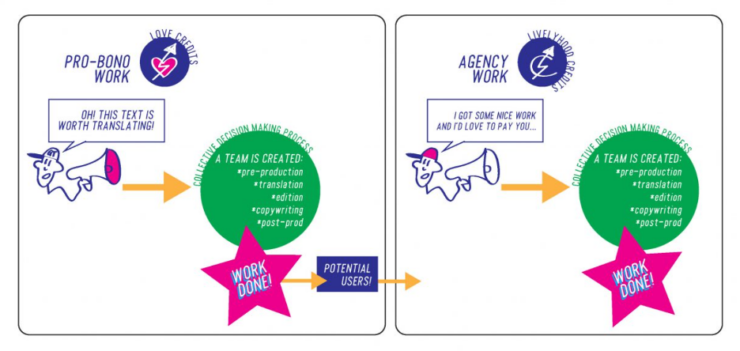Documentation
The Alternative Future of Blockchain-Enabled Organization – Jingzhe Zhang
During this workshop, I had a discussion with one of my groupmates on whether we should be optimistic about blockchain technology being applied to progressive or leftist projects. He suggested that maybe we should first of all think about non-blockchain methods. In other words, before “feminist cryptoeconomics”, do we really need cryptoeconomics? My opinion was that we should not disengage with the field of blockchain technology because it is important that we keep dangerous trends at bay, especially if this field, like artificial intelligence, will stay with us.
One thing that I agree with Tim is that we should never forget to question the entire field of technology. The input given by Inte and Ania was: “So in this case, we have to ask the question: what really is blockchain? Is it really capable of furnishing non-capitalist alternatives?”
To delve into these questions, I watched a video lecture titled “Blockchain 101 for Socialists” on a YouTube channel called The Blockchain Socialist. The lecture first explains what blockchain technology is, and then gives a few non-capitalist applications.

As I understand it, blockchain has two aspects: firstly, it is a data structure, i.e. a chain of connected blocks where each block is data. It could be a list of transactions in the case of cryptocurrency or a smart contract in the case of Distributed Autonomous Organization (DAO). These blocks of data are connected via a hash function which ensures the integrity of the previous blocks. Secondly, it is a network of computers in which every node has a copy of the entire blockchain, and users at any one computer can send or receive peer to peer value, identity or data. In the case of a DAO, which has been hyped as the progressive future of capitalism, for example, it is a company that does not have management for decision making; instead, members of DAO that run the company by collectively voting – based on the tokens which they can earn and trade with each other – on smart contracts that are completely transparent.

One of the examples given in the lecture is particularly interesting. It has not only a concrete application but also a manifesto, where a governance model called Distributed Cooperative Organization (DisCO) is laid out in detail and by doing so provides an answer to my question above. In their own words, “Instead of asking what blockchains could do for us and working backwards from there, we combined the existing elements— blockchain, cooperatives, commons open-value systems, feminist economics — with our years of experience in P2P and commons-oriented practices.” DisCO is also proposed as a critique and substitution of DAO. Their main objection is that DAO appeals to the right-libertarian ideology and sanitizes messy, human interactions, “the difficult work of having conversations and relationships” (48).

The core of their framework is called Community Algorithmic Trust (CAT), a shared repository to track information and value for the cooperative. An example of its use can be found in Guerilla Transition, a collective that [insert short description here], where it is digitally encoded as part of a DisCO that reflects the off-line activities and life experiences. It is often encoded on a blockchain but not necessarily. What is important is that it “supports the collective” in overseeing, simplifying and carrying out the human level agreements and rules” (53). In the case of Guerrilla Translation, a non-blockchain Distributed Ledger Technology (DLT) framework is used to document workflow and distribute credits to members for their work, which has three categories: pro bono (translation for public good), livelihood (client-paid translation for profit which funds the pro bono work done by members) and care work (work that sustains the cooperative). And a blockchain-based solution will be used for trustless interactions between DisCOs (70). The technical structure of CAT for Guerrilla Translation is still under development.
To conclude, this has been a difficult but fruitful dive for me. It makes me more hopeful in the future of internet and human organization. And I look forward to reading more on commons theory and learning more about projects of p2p technology, cooperatives, data and value governance, etc.
Bibliography
“Blockchain 101 for Socialists Live Session Recording (May 2nd, 2020).” YouTube, https://www.youtube.com/watch?v=IFqQsz_j1ko
“DisCO Manifesto.” Guerrilla Translation, https://www.guerrillatranslation.org/the-guerrilla-translation-manifesto/
“Distributed Cooperative Organization (DisCO) Governance Model V 3.0.” Guerrilla Media Collective, https://wiki.guerrillamediacollective.org/Distributed_Cooperative_Organization_(DisCO)_Governance_Model_V_3.0.

